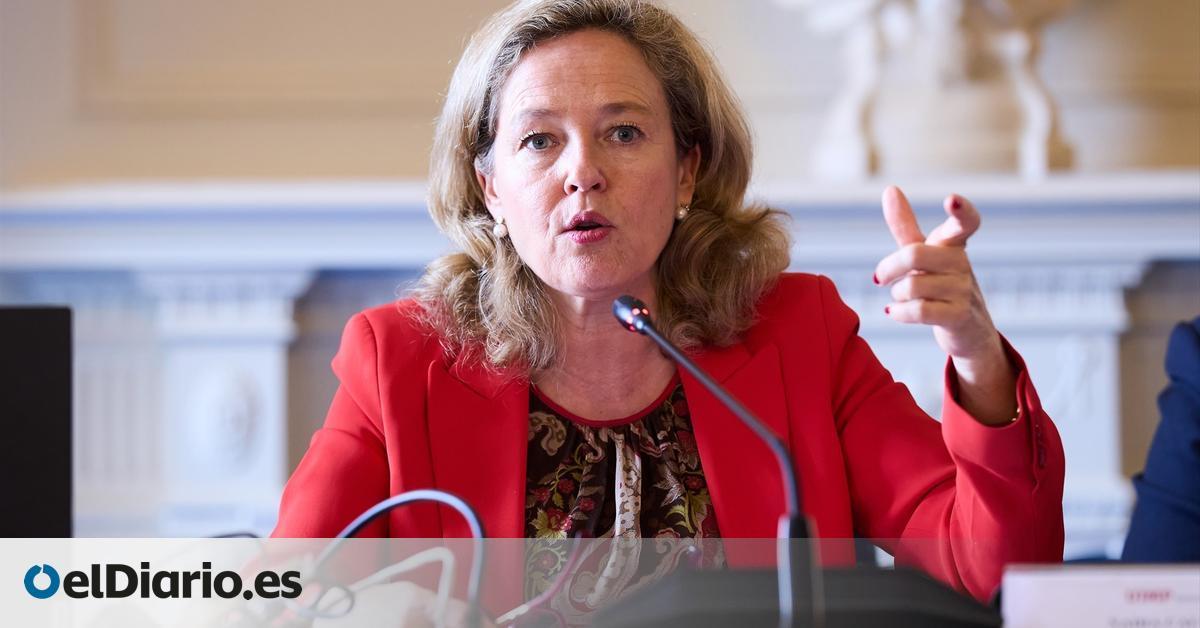
Spain’s economy grew four times more than the European Union (EU) average in the first quarter. The INE has revised upwards this Friday the increase in GDP (Gross Domestic Product) between January and March, up to 4.2% from 3.8% compared to the first quarter of 2022, and has also increased growth by one tenth compared to to the last quarter of last year, from 0.5% to 0.6%.
The ECB’s definitive turn of the screw to the economy: leave interest rates above inflation
Further
GDP has already recovered the pre-pandemic level thanks mainly to the strength of the foreign sector (due to the ‘boom’ in tourism and exports of other services) and the dynamism of business investment.
Not “stagnation”. Not much less “decline”, as the candidate of the Popular Party (PP), Alberto Núñez Feijóo, came to assure recently. Spain’s economy leads growth in Europe, where Germany has fallen into technical recession (two consecutive quarters of GDP contraction compared to the immediately preceding period).
And he does it with two great supports. On the one hand, there is the resistance of the labor market, which is propping up household consumption despite the loss of purchasing power and the damage from the rises in interest rates by the European Central Bank (ECB). And, on the other, the fall in inflation, which improves the competitiveness of companies in our country, which bear less costs in general, and specifically due to cheaper energy.
The increase in GDP between January and March, compared to the last quarter of 2022, is the highest rate since the rebound in the spring of 2022. After advancing 5.5% in the whole of 2022. And another 5.5% in 2021 “Spain has reached the level of GDP prior to the pandemic, which was the last indicator pending recovery, since the rest are well above it, as is the case with employment data, youth unemployment, investment and the productivity per hour worked”, celebrate from the Ministry of Economic Affairs of Vice President Nadia Calviño.
And the Bank of Spain and the rest of the institutions are confident that our country will continue to lead growth in the EU in 2023, with a forecast of 2.3%. And in 2024, and also in 2025, with estimates close to 2% in both years.
The unprecedented response of national and European institutions, first to the pandemic and then to the inflation crisis and the war in Ukraine, is favoring the resilience of families to the damage of inflation and to a greater extent of companies.
The main keys range from the intense growth of corporate profits, to the deployment of the Recovery Plan, and go through unknown job stability in our country, due to income protection measures (increases in pensions, SMI, IMV , cap on gas, transport discounts…), due to the moderation of energy inflation and, finally, due to the good performance of the foreign sector and tourism.
Fall in household consumption
Among the most negative readings of the data for this Friday, the INE highlights that household consumption fell by 1.3% between the first quarter of 2023 and the last of 2022, and “chains two periods with negative quarter-on-quarter rates, what had not happened since the second quarter of 2022, in the middle of the pandemic ”.
Among the most positive readings, the investment figures of companies stand out due to their growing profits by transferring inflation from their costs to sales prices, especially in “machinery, capital goods, weapons systems and cultivated biological resources (3 .5%)” and in “intellectual property products (1.4%)”.
“I want to reassure Feijóo, if Sánchez continues to lead the Government of Spain, he can be calm that our country will continue to lead and be one of the three economies that grow the most within the EU,” said the economic vice president, Nadia Calviño, on Thursday. “The Spanish economy is experiencing very strong growth. There are 20.8 million people affiliated with Social Security, this is 1.3 million more than before the pandemic. We have raised the SMI by 50%, pensions by 25% and we have protected family income, which explains why the disposable income of Spanish households is improving even in such a complex international context”, she continued.
“This is not the time to stop, to go back, to reopen debates from the past as we are seeing these days, nor to repeal those reforms that we have put in place and that are good for our country and that are already having positive results. on the ground,” said Calviño.
Finally, the vice president explained that “all the economic indicators show us that there is an economy that is growing strongly and we are taking advantage of this economic growth to lower as quickly as possible and absorb as quickly as possible the extraordinary public debt that had to be issued precisely to respond to the pandemic, to finance the ERTE, the provision of the self-employed, to protect companies, jobs, family income and protect a base of the economy that would allow us to have economic growth as strong as the one we have registered since then.
Source: www.eldiario.es

